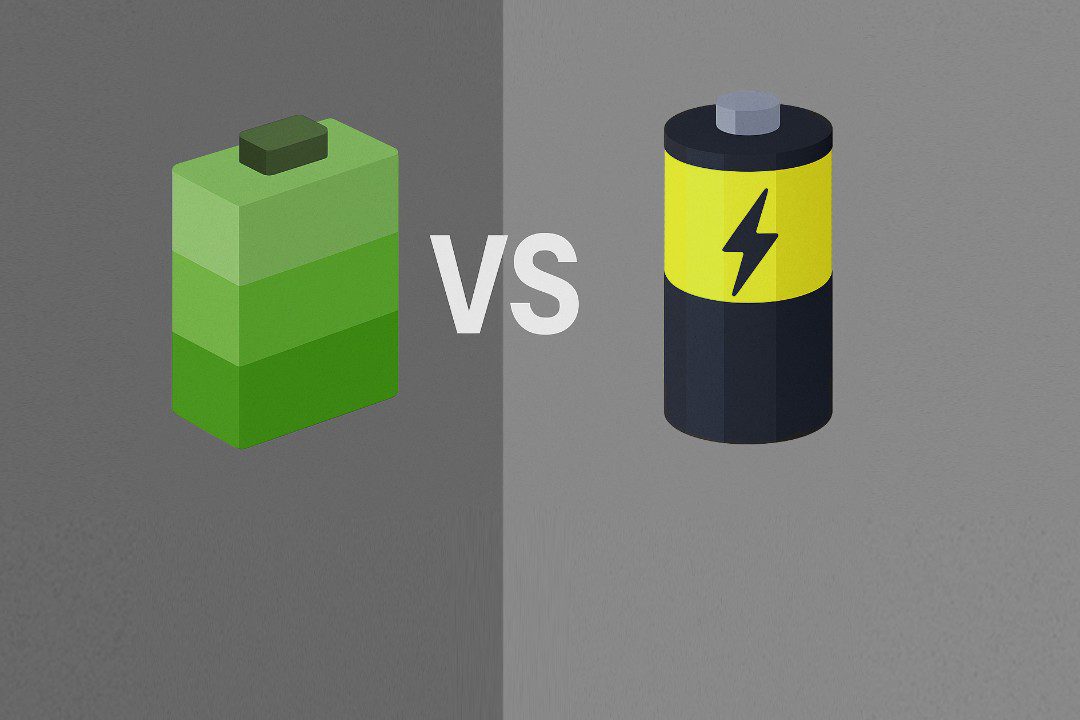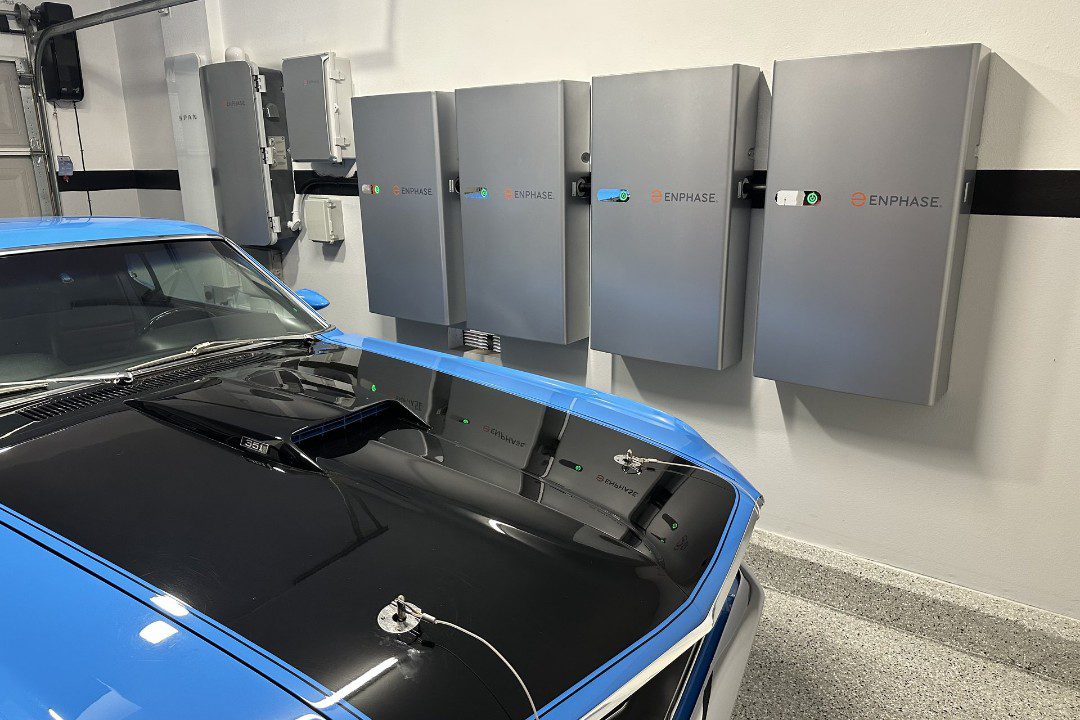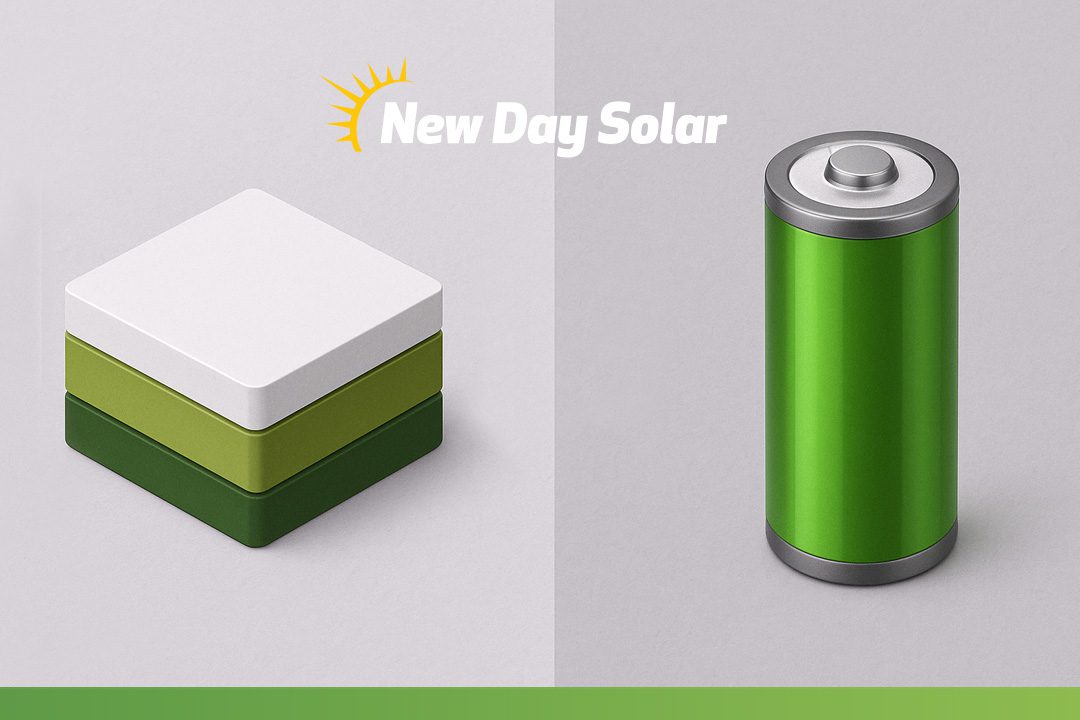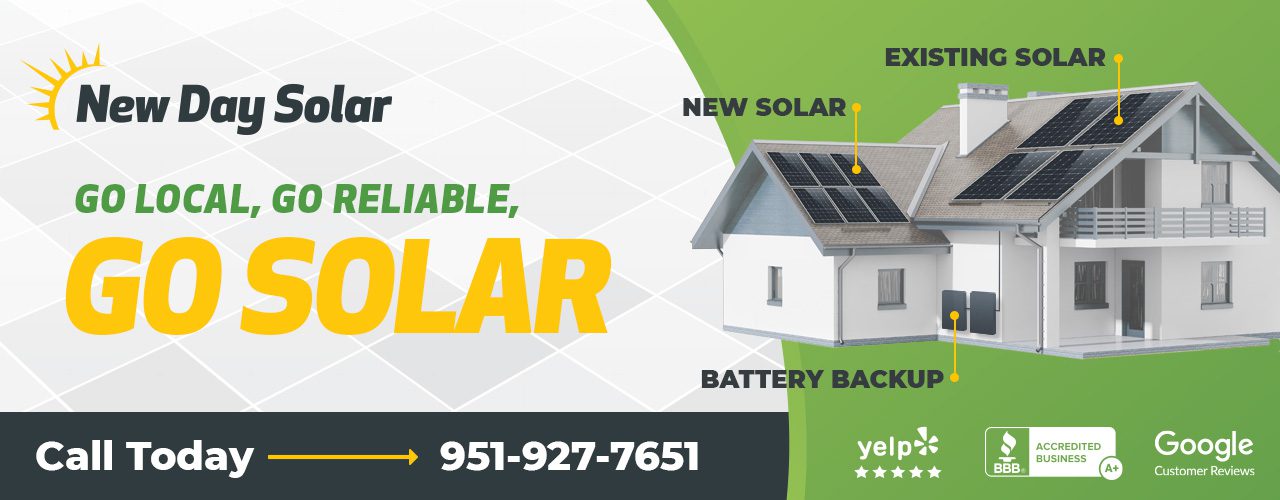Comparing Lithium-Ion vs Solid-State Batteries for Solar Energy Storage

Battery technology plays a critical role in solar energy systems, enabling homeowners to store energy for use when the sun isn’t shining.
As solar installations rise, interest in energy storage options has grown, with homeowners increasingly comparing solid-state batteries vs lithium-ion solutions.
What Are Lithium-Ion Batteries in Solar Energy Systems?
How Lithium-Ion Batteries Work
Lithium-ion batteries use a liquid electrolyte to allow lithium ions to move between the anode and cathode during charge and discharge cycles. These battery cells have been the standard in solar energy storage for years.
Advantages of Lithium-Ion Batteries
- Proven track record in residential solar applications
- Used in products like Tesla Powerwall, Enphase, NeoVolta, and Franklin Whole Home
- High energy density and efficiency
- Compact battery packs suitable for home installations
Limitations of Lithium-Ion Batteries
- Risk of overheating or fire in rare cases
- Gradual degradation over time
- Safety concerns due to the flammable liquid electrolyte

What Are Solid-State Batteries in Solar Energy Systems?
How Solid-State Batteries Work
Solid-state batteries use a solid electrolyte instead of a liquid one. This solid material enables the flow of lithium ions, offering a safer alternative to traditional lithium-ion technology.
Advantages of Solid-State Battery Technology
- Higher energy density compared to lithium-ion
- Longer battery life and improved safety
- Solid-state batteries are safer and tend to perform better under extreme conditions
- Potential to revolutionize energy storage systems with next-generation performance
Challenges in Solid-State Battery Adoption
- Still in development for residential solar use
- Higher production costs and limited availability
- Fewer real-world installations compared to lithium-ion batteries

Lithium-Ion vs Solid-State Batteries: A Direct Comparison
Key Differences in Energy Storage Technology
- Electrolyte: Liquid in lithium-ion vs solid in solid-state batteries
- Safety: Solid-state batteries offer improved safety compared to traditional lithium-ion batteries
- Energy Density: Solid-state batteries tend to store more energy and offer higher energy density
- Lifespan: Longer lifespan in solid-state battery systems
- Cost and Availability: Lithium-ion batteries are more widely available and cost-effective today
What This Means for Solar Energy Systems
Real-World Energy Storage Options
New Day Solar currently offers battery storage from leading lithium-ion technologies including:
These systems are tried, tested, and integrated seamlessly into residential solar energy systems.
Looking Toward the Future of Energy Storage
Solid-state batteries promise longer battery life, enhanced performance, and increased safety. As solid-state battery technology evolves, we may see broader adoption in renewable energy storage, potentially changing how we power homes with solar.
Choosing the Right Energy Storage Solution with New Day Solar
Whether you’re adding battery backup to your system or upgrading, our team helps you find the best battery for your home. We assess your energy needs, walk you through battery technologies, and install systems that provide long-term value.
Explore more about adding battery backup to your system, or check out our full comparison of storage solutions.

Ready to Power Your Home With Solar and Storage?
New Day Solar helps you select the right battery—lithium-ion or future solid-state—based on performance, safety, and cost. Let’s build your energy independence.
Contact us to schedule your free consultation and learn more about our solar energy storage solutions.
Filed Under:
have questions?
Schedule a consultation with Our Solar Experts
Find out more with an honest, no pressure consultation
with our team of solar experts.